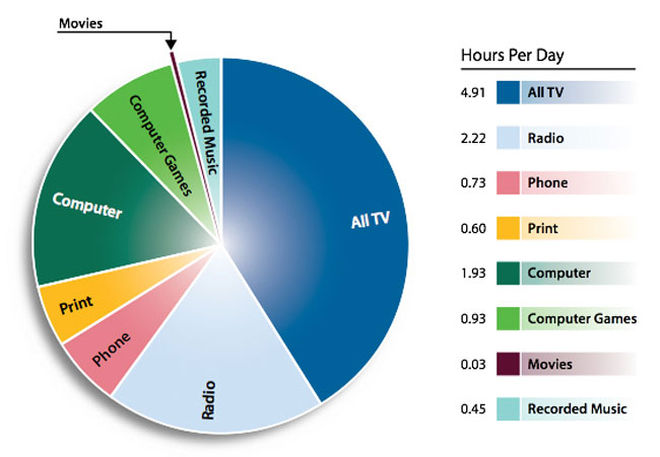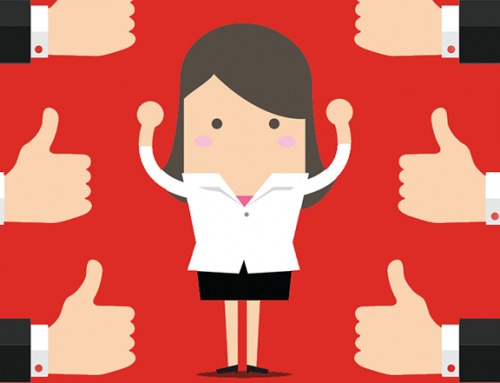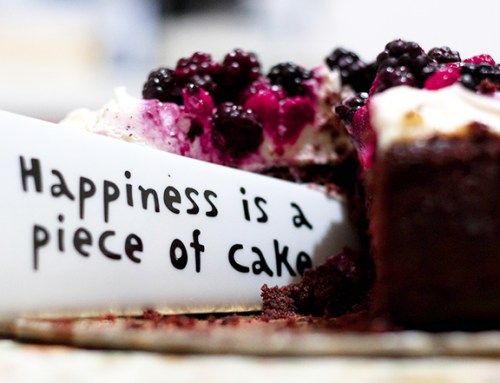Your breathing is shallow, you suffer from a headache, feel tension around your neck and shoulders and your bodily reserves diminish and your immune system weakens. As a consequence you can’t enjoy the things that you normally love to do. Maybe you experience a lack of energy because of the over 100,000 words and other stimuli that your are bombarded with each day, or because your workload continues to pile up. In short: you feel stressed. Yikes! Read this blog post and find out how you can reduce your stress level and start to enjoy your activities like before. This way, you very likely save yourself from becoming part of the one million Dutch people that malfunction for a longer period of time, because of stress.
The Week of Work Stress is currently happening. The Dutch Ministry of Social Affairs encourages employers and employees to talk to each other shamelessly and freely about what stress at work means to them. According to ArboNed, an organization that provides consultancy services in the field of labor, the amount of people suffering from burnout in the Netherlands has increased in the past year. When completely stressed-out, employees also tend to have a longer duration of absence. In the past year, about 20 percent of long term absence from the workplace was caused by stress. Employees that fall ill because of experiencing too much pressure, on average spend 180 days at home. Do you feel like you are lacking energy to go to work or do other things, because of the stress you experience? Or is stress bothering you in daily life? Then please read on, and prevent yourself from all of this harm!
Friend or enemy?
Let’s get back to basics first. What is stress, actually? The average psychologist will much likely tell you that stress simple means tension, or too much pressure. This is being caused by stimulants that increase tension, the so-called stressors. At times when you are in a stressful situation, your body gets ready to fight or flee. A long time ago, when our ancestors had to run from wild animals or other tribes quite often, this fight-or-flight reaction was really important. Nowadays, there still are some moments when your body has to become active right away. For example, when you are facing a dangerous traffic situation. However, you can also experience stress when you run into non life-threatening situations, like certain unpleasant situations at work or in your personal life. The way you deal with this is incredibly important for your wellbeing. Experiencing some stress every once in a while, isn’t that harmful. It can even be healthy sometimes. Among other things, because it makes you aware of your boundaries. Health psychologist Kelly McGonigal tells you more about the positive sides of stress in her TED Talk. (You might also like the confession that she makes on her activities in the field of stress management!)
Feeling stressed out on a regular basis isn’t good for you. Prolonged, excessive stress can, among other things, lead to burnout. Research institute TNO even states that about one million Dutch people suffer from this. Check for yourself if, and how, you can reduce your stressors in one way or another. When you experience stress at work, you can for example follow the steps that are presented in this article. Unfortunately, certain stress stimuli that you can’t change much. So, how can you deal with that that? Check out the following tips:
1. Take your feelings seriously
We can’t stress this enough: take your feelings seriously! People might say: ‘Come on, don’t stress out that much!’ They most likely mean to cheer you up by saying this, but they simply can’t feel what you feel. It is important that you decide to act on your feelings, because no one else can do this for you. Your body makes you feel all these emotions for a reason: in order for you to become aware of how you are doing. As you have read earlier, negative feelings like fear, pain or stress, indicate danger. Therefore, you should acknowledge your feelings and look for ways to deal with them, in a way that suits you.
2. Allow yourself to relax
Did you know that your brain receives around 3,000 commercial incentives during the day? And that the media and other sources, according to researchers from the University of California, San Diego, already bombarded the human brain with over 100,000 words, being a total of 34 GB, back in 2008? This huge amount of information is enough to overload a laptop within a week!

Source: How Much Information?, University of California, San Diego, 2009
Information overkill can cause feelings of agitation. Check what causes most (distracting) stimulants for you. Is it your phone that keeps vibrating? Background music when you try to concentrate? Put your phone away, turn down the music and try to mindfully focus on cleaning your house. Feng Shui, a Chinese philosophy that has been around for over 3.000 years focuses on how your environment influences your feelings and your level of happiness. According to their vision, being surrounded by a clean and tidy environment also causes you to feel happier, so you will kill two birds with one stone.
So, what about you? Do you allow yourself, in these times of stimulants overkill , to have moments of relaxation? This is an important question to ask yourself, even when you don’t experience stress right now. What is being seen as a form of relaxation, differs from person to person. While one can easily relax by getting exhausted when going for a run, someone else would rather lay down on the couch, reading a good book. Choose ways of relaxation that work for you. Maybe a day at the spa, mindfulness training or personal coaching feels like a big investment, but in the end, it will definitely pay off when you feel good about yourself again.
3. Start exercising
If you often go out for a run or practice another sport, chances are high that your level of body exercise will be okay. Are you not that big of a fan of working out? Then it is important to changethis. Scientific research actually proves that body exercise reduces the amount of stress hormones in your body and it also causes the release of the happiness hormone endorfine. Nowadays, more and more psychologists even see physical exercise as a great way to reduce stress.
Choose a form of physical exercise that really suits you. Attending a fitness class that you, hate with a passion, is probably not going to help you to continue working out. Therefore, think about what brings you joy! Figure this out by trying some new sports or going for a walk in a really nice surrounding. Do you find it hard to go by yourself? Maybe you can ask a friend or colleague to accompany you. This isn’t only great fun, but also helps you to exercise more often.
4. Check your breathing
Whenever you feel stressed out, your breathing will become superficial and restless. By focussing on the way you inhale and exhale, you can help yourself calm down. The following exercise will help you do this. Place your hands on your abdomen. Try to guide your breath towards your hands. When you inhale, your belly will expand and when you exhale, it will flatten again. When you practise this way of breathing more often, you will notice it becomes easier quite soon. Eventually, you will not even need to use your hands anymore and you will be able to calm yourself down by just paying attention to your breathing.
5. Focus on the positive
Try to think in a more positive way. Maybe you have heard about the Self-Fulfilling Prophecy, demonstrated by sociologist Robert K. Merton, before? This theory explains that what you think will eventually happen. By focussing really hard on achieving something, you are actually being closer to its realization. However, this also is the case for negative things. When you are convinced that you are not able to fulfil a certain task or role, it will most likely never happen, indeed. However, when you believe in yourself, your chances of being successful will increase spectacularly! Do you often have the feeling that you are not good enough? Try to be a little more kind to yourself. Maybe you set really high goals for yourself or expect things that you don’t necessarily have to live up to. Coaching can help you overcome this struggle. Your coach will help you with how you see yourself, what effect that has on you and how you can deal with this in a better way. When you learn not to judge on yourself that hard, you will eventually go easier on other people too. This helps you to become an even more positive, less stressed and happier person in everyday life.

On top of that, surround yourself with optimistic people and you will find this having a very positive outcome on you too! Do you know the feeling of emptiness and lack of energy when you just met up with certain friends or acquaintances? Maybe this is your wake-up call to make some choices in your friendships or choose for yourself. Don’t be afraid to appear egocentric. By taking care of yourself, you also take care of the people around you. Try to spread more positivity yourself as well. Research done by Sigal Barsade, Professor of Management at the Wharton School, University of Pennsylvania, states that when people show positive emotions within a group, it has a positive outcome on the group as a whole. This is called the Ripple Effect. Less conflicts will appear, prestation outcomes will go up and co-working will become more smooth. You can have a huge part in this yourself. For example, try to listen to someone’s story with a little extra care or hand out a nice compliment every once in a while. You will soon notice an interaction, which causes you, as well as the other person, to become more happy!
Do you find it hard to focus on positive things? Then think about all the things you are grateful for. Maybe the sun is shining, you are savoring a nice cup of coffee or someone smiles at you when you are walking down the street. Also try to smile as much as possible! Difficult? Look for things that make you laugh. Pay a visit to your favourite comedian or have cup of tea with someone that makes you laugh like crazy!
What ways do you use to reduce stress? We would love to hear from you!

Will 2017 be your best year ever?
In January 2017 we will launch the brand new program Happier New Year. Do you want to start 2017 in a fantastic way, and end it even better? Both at work and in private? Less stress and more happiness in your life? Then join us! Here’s your chance to co-determine how this blended program, that unites the best of online and offline learning and helps you to create your happiest year ever, will look like!
Forerunner in sustainable employability
Power2Improve has been named as a forerunner in the field of sustainable employability. According to the Dutch Ministry of Social Affairs and Employment our innovative anti-stress and job satisfaction approach is an inspirational example to other employers. Wondering how we are bringing this approach into our own practice and how it can help you to be happier and 4x more productive at work as well? During the Week of Work Stress (from 14 to 17 November) you will read all about it on our Facebook page. Want to stay up to date automatically? Please leave your contact details below.

Stay up to date!
Please leave your contact details below and the information will come to you naturally!







Leave A Comment